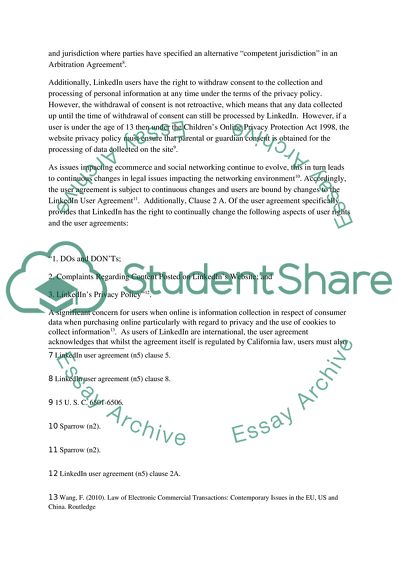Cite this document
(“Linkedin Understanding a Statement of Rights and Responsibilities Case Study”, n.d.)
Linkedin Understanding a Statement of Rights and Responsibilities Case Study. Retrieved from https://studentshare.org/law/1746640-business-low
Linkedin Understanding a Statement of Rights and Responsibilities Case Study. Retrieved from https://studentshare.org/law/1746640-business-low
(Linkedin Understanding a Statement of Rights and Responsibilities Case Study)
Linkedin Understanding a Statement of Rights and Responsibilities Case Study. https://studentshare.org/law/1746640-business-low.
Linkedin Understanding a Statement of Rights and Responsibilities Case Study. https://studentshare.org/law/1746640-business-low.
“Linkedin Understanding a Statement of Rights and Responsibilities Case Study”, n.d. https://studentshare.org/law/1746640-business-low.


